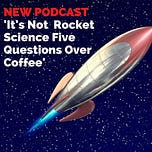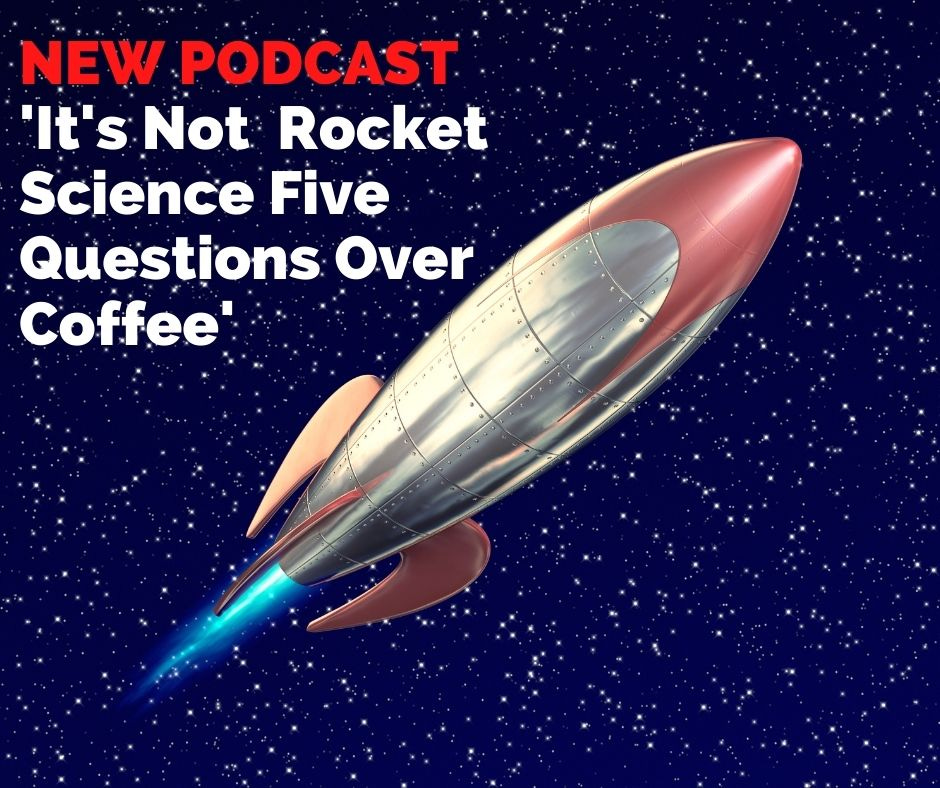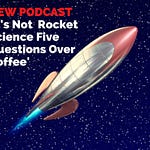Who is Ann?
Ann Hobbs is an experienced writer who has mastered the art of writing books that speak directly to her reader's needs. Before putting pen to paper, she takes the time to understand her audience's problems and comes up with solutions that will make their lives easier. This strategy ensures that her writing is structured to address specific issues and provides a clear path to resolution. Ann's books are easy to follow, engaging, and packed with practical advice that is delivered in an enjoyable and relatable way. If you're seeking a guide that will help you transform your life, Ann Hobbs is the author you should seek out.
Key Takeaways
[00:01:40] Writer has good language skills, but lacks book structuring abilities.
[00:02:22] Know your audience when writing a book.
[00:03:44] Identifying the reader is crucial in successful writing.
[00:04:27] Before starting to write a manuscript, identify the reader, their problems, and how to solve them to make writing easier and help you structure the book.
[00:06:46] Publishing a book has a powerful impact on selling business programs.
[00:07:44] Writing a book takes effort, money, and help; many people want to write a book but don't follow through, admiring those who do.
[00:08:31] Author shares three steps to master ghostwriting, emphasizes importance of understanding reader and their problems in writing process. Also mentions writing a book in five weeks while ill.
[00:09:37] Editor cuts 30,000 words from a manuscript with multiple target readers, causing reluctance due to the author's effort.
[00:10:41] Writing is not just about grammar, it's about having a voice.
[00:11:55] Motivation comes from helping others and changing lives through sharing information in a book.
Valuable Free Resource or Action
https://mailchi.mp/f31a5f07b6af/3-steps-to-master-your-writing-booklet
A video version of this podcast is available on YouTube :
https://www.youtube.com/live/nIBMoc1LV44?feature=share
_________________________________________________________________________________________________
Subscribe to our newsletter and get details of when we are doing these interviews live at https://TCA.fyi/newsletter
Find out more about being a guest at : link.thecompleteapproach.co.uk/beaguest
Subscribe to the podcast at https://link.thecompleteapproach.co.uk/podcast
Help us get this podcast in front of as many people as possible. Leave a nice five-star review at apple podcasts : https://link.thecompleteapproach.co.uk/apple-podcasts and on YouTube : https://link.thecompleteapproach.co.uk/Itsnotrocketscienceatyt!
Here's how you can bring your business to THE next level:
If you are a business owner currently turning over £/$10K - £/$50K per month and want to grow to £/$100K - £/$500k per month download my free resource on everything you need to grow your business on a single page :
It's a detailed breakdown of how you can grow your business to 7-figures in a smart and sustainable way
————————————————————————————————————————————-
Transcript
Note, this was transcribed using a transcription software and may not reflect the exact words used in the podcast)
SUMMARY KEYWORDS
audience, problems, desire to help, effort, writing a book, power of publishing, credibility, authority, program, motivation, scare, life-changing, valuable information, save time, social media, growth programs, proposal, knowing the reader, problem-solving, manuscript, English language skills, voice, podcast, advice, simple steps, target audience, persona, manuscript editor, cutting words, mastering writing, ghost writer, understanding reader's needs.
SPEAKERS
Ann Hobbs, Stuart Webb
Stuart Webb [00:00:22]:
Hi, and welcome back to It Not Rocket Science five Questions Over Coffee. I have my coffee mug in front of me. I'm here with Anne from Forward Thinking Publishing. I think Ann is going to give us some great insights into how we as business owners can go about letting people know about our experiences, our expertise by publishing. So, Anne, welcome to it's not coffee. Five it's not rocket science. Five questions over coffee.
Ann Hobbs [00:00:52]:
Yeah, thank you for having me. I've got my coffee mug, too.
Stuart Webb [00:00:55]:
Excellent. Tell me about the sort of people that you help with your business. What is it you're helping them to do?
Ann Hobbs [00:01:04]:
So, mainly I work with business owners that really want to kind of promote their business by writing a book, and that has to be done in a specific way. So one of the problems that they know what they do and they're expert at what they do, they just don't know how to write a book. So that's where I come in.
Stuart Webb [00:01:26]:
And tell me, what sort of things do they find themselves doing to try and get out of getting things written down that don't help them? What is it you help them to sort of straighten out in their heads?
Ann Hobbs [00:01:40]:
Yeah, I think they know how to write. It's not a question of the writing. As an editor, I never correct the language or the writing. That's always quite perfect. It's how they kind of structure the book. They just don't know how to write a book. And that's a lot different to I don't know how to write, because they obviously do. They just don't know how to write it in a book and how to get it into kind of a book.
Stuart Webb [00:02:12]:
And what do you see as some of the main problems with people actually therefore writing a book? What are some of the things that you see that go wrong?
Ann Hobbs [00:02:22]:
Yeah, so one of the main issues that I see when I have a manuscript is that people don't think about who the reader is. Then they try to solve so much of their expertise in one book, they're not speaking to anybody. Like, kind of marketing. If you're not speaking to anybody, you can't market it. And this is the same kind of with the book I know within two sentences of a manuscript who the reader is that I know they don't know who they are.
Stuart Webb [00:02:59]:
Yes.
Ann Hobbs [00:03:00]:
Amazing.
Stuart Webb [00:03:02]:
I know. I was taught many years ago when it comes to starting any piece of writing, in order to really get it clear in my head exactly who it was that I was writing to, that I had to sort of get a picture of them, give them a name, and then start any writing with Dear Ann or Dear Fiona. So that whenever I was writing it, I was writing it very specifically to a person, even if that person was a fictitious person or an Avatar or a persona, whatever. But by having that clear picture and writing Dear so and so at the beginning of my writing, that enabled me to be absolutely clear about writing something very specific to a specific person.
Ann Hobbs [00:03:44]:
Yeah. And people don't want to do it because they don't want to unleash. They think by speaking to one person, they're only speaking to one person. But I can write a book in four weeks because I know the subject, I know who the reader is. And it's very simple, kind of with the writing. So, yeah, the number one problem that I see is that they don't know who the reader is.
Stuart Webb [00:04:07]:
Yeah. Brilliant. Well, I know you've got some valuable free advice to give to people who have got that sort of problem. And I've got the link on the screen at the moment. Do you want to talk us through what is on that particular booklet that you've got? The Three Steps to Master Your Writing Booklet.
Ann Hobbs [00:04:27]:
Yes. So it takes you through kind of and know your reader, what is their problem and how you're going to solve it. So these are the questions that before you stuart a manuscript, you should be looking at before you even start kind of the writing process, Ann. Think about who they are, what their problems are, how you're going to solve it, which will make the writing so much easier in a couple of weeks when your know these questions. So that will really help you to figure out how you're going to get the book all structured. So that will tell you how to do it all from the structure.
Stuart Webb [00:05:10]:
Do you know something, Ann? It is the same story for so many things, isn't it? I was only talking to somebody on one of my growth programs yesterday, and they're trying to pull the growth lever at the moment of getting their proposals accepted. We were talking about the key things to put into a proposal, Ann. The three key things that I said that they had to do was know exactly who the person was that was going to be going to be reading the proposal. What was their problem that they had and what was the solution that they were looking for, how you were going to provide that solution. It's really the key to business, isn't it? Know the problem you solve and demonstrate that you can actually understand that problem and demonstrate that you've got the solution to it. It is the key to everything.
Ann Hobbs [00:06:02]:
Yeah, it is the key to everything. But when you write a book, people seem to forget that. But if you get it all right at the beginning, then your marketing becomes very clear. Then you can sell that book. So that's what we do. We produce a great looking book, but we also help your with the marketing by getting it set up in the correct way.
Stuart Webb [00:06:31]:
Great. Brilliant. Was there a particular course or program that brought you into publish that really sort of helped you to understand exactly how you could do this?
Ann Hobbs [00:06:46]:
Not really. I understood the power of a book when I published one because kind of like all my clients, they want to kind of get their advice out there to help people, which I did. But then when I went to networking events, I didn't understand the power of it. Selling became very easy for me. I sold like a 2000 pound program in like ten minutes with my book. They didn't even want to read the book, which was I was really upset they didn't want to pay ten pounds for my book, but they paid two grand for a program. So it's the power that that book gives you as a business owner that you don't realize until you've published one.
Stuart Webb [00:07:32]:
It's the credibility builder, isn't it? It's the thing which actually really builds your credibility to have a book or something like that behind you, which allows you to sort of say, I really am an expert. I know. Because I've written a book about it.
Ann Hobbs [00:07:44]:
Yeah, because it takes effort, it takes kind of your money as well. So people really see that. But there's a lot of people that want to write a book, but they just don't. So they really admire those people that have taken the time, worked it out, got the help they've needed, and they've got kind of something to how for it, which not a lot of people will want to do well, they want to do, but they don't do.
Stuart Webb [00:08:14]:
You mentioned at the end it's possible you said you can write a book in 30 days, which I know is possible because I've done something similar. Do you have techniques, tips that you give people on how to sort of be able to crank out a book in such a short space of time?
Ann Hobbs [00:08:31]:
Yeah. It's all in my three steps to master. And I did it because I was a ghost writer for someone which I knew the subject, but I didn't know all of the subjects and so I had to put all of those like who is the reader? What is the problem? What am I going to solve? I had to do all of that and I wrote that in actually five weeks because I got ill after four weeks. But I mean, I did that in five weeks. But it's going back to those basics. Who is the reader? What's their problem? So I have to put all that into practice to get that book all written brilliant.
Stuart Webb [00:09:11]:
I love it.
Ann Hobbs [00:09:12]:
Quite eye opening because I stood there because when I first got the proposal, I like, how am I going to write this? So I have all the same questions all my clients have and I just thought, no, back to the reader.
Stuart Webb [00:09:28]:
Absolutely love it. I think you're absolutely right. It is so critical we get that focus on the person that you are speaking to isn't it?
Ann Hobbs [00:09:37]:
Yeah and especially when I see a manuscript I had one and it was 90,000 words. I asked him who the reader was and it was like five different people so I'm like that's not going to sell anyway. But then I had to cut out the words. I had to cut out like 30,000 words. And it pains me because it took him so much time to write these words, but they just didn't. Once you worked out who the reader is that reader was they didn't actually but I had to take out so many words, they didn't kind of belong there anymore. So that what pains me is that I'm having to cut a lot of words out once your realize who the reader is.
Stuart Webb [00:10:20]:
Yeah, I love it. We're coming towards the end of our interview and I've only got sort of the one question left for you really which is there must be one question that I haven't asked which you would quite like me to have asked at this stage. What would you have liked me to have asked you? Which I haven't so far.
Ann Hobbs [00:10:41]:
I think a lot of the time people say can I write it? Am I really good at English? Am I good at this? I wasn't really good at school. So these are the blocks people come to me with. And I say, it isn't about where the comma is or if you've kind of used the Capital Letter. It's about having a voice. And if your voice shines through that kind of your manuscript, then that's where the power is. And no one's going to be upset if the comma is in the wrong place. But if your voice doesn't shine through, I think that is really important. Other than the English language.
Stuart Webb [00:11:25]:
I think it comes back to that thing that you started with, isn't it? It's knowing who you're trying to reach. If your know who you're trying to reach, if you know what their problem is and you really want to help, then all you have to do then is put the effort behind that. And then a book comes from that because you are reaching out to help somebody, even if that is with money intention. But because you're looking at ways of helping them, it becomes easier to put that across, doesn't it?
Ann Hobbs [00:11:55]:
Yeah and it helps you with the motivation, it always does. If I'm thinking about that one person ann, I'm like I've got the information that they need, if I don't write it, then I'm not doing them any favors. So that always kind of motivates me into getting it out there because it is scary. It is scary putting your stuff out in a book and I understand that but I'm looking about that person if I can change someone's lives, even if you know how to do social media and you tell them it's going to save them so much time so why not get it in a book.
Stuart Webb [00:12:36]:
Yeah, brilliant. I love it. I love it and that's great. I love what you've been telling us. I love what you're speaking about. I think it's brilliant. Everybody, if you're watching this and thinking, I'd love to know about who's coming on so I can get on and ask questions of these people and really catch up with some of the great advice you're getting, go to this link, which is https link thecompleetaproach co UK that's link thecompleetaproachnewsletter that gets you onto our newsletter list. You will get an email every week which lets you know about who's coming onto the podcast, what great advice they're going to be giving you so that you can get your questions into the people that you need to speak to. Really would encourage you to do that. And I'd love to thank Ann this day for coming and spending just a few minutes with us about how we can go about very easily creating a book. And it's so simple, with just three simple steps. Anne, thank you for that advice.
Ann Hobbs [00:13:36]:
Thank you for having me, Ann. Stewart.
Stuart Webb [00:13:38]:
That's absolutely no problem at all. Speak to you again soon.
Ann Hobbs [00:13:41]:
Okay, bye.











Share this post